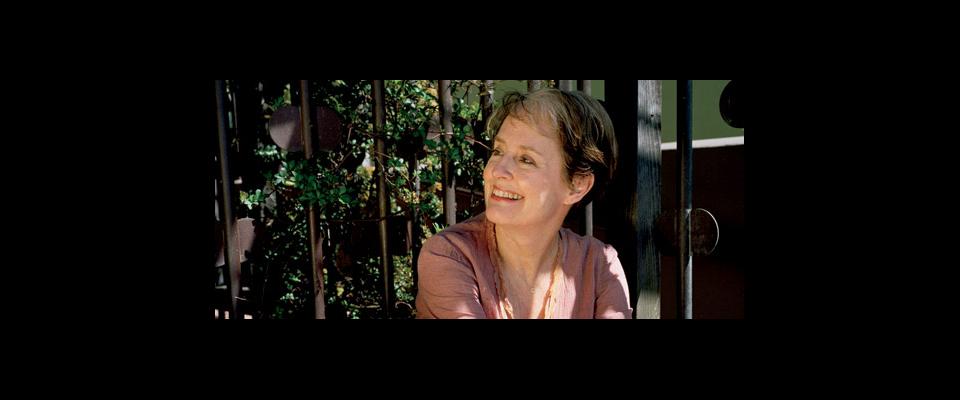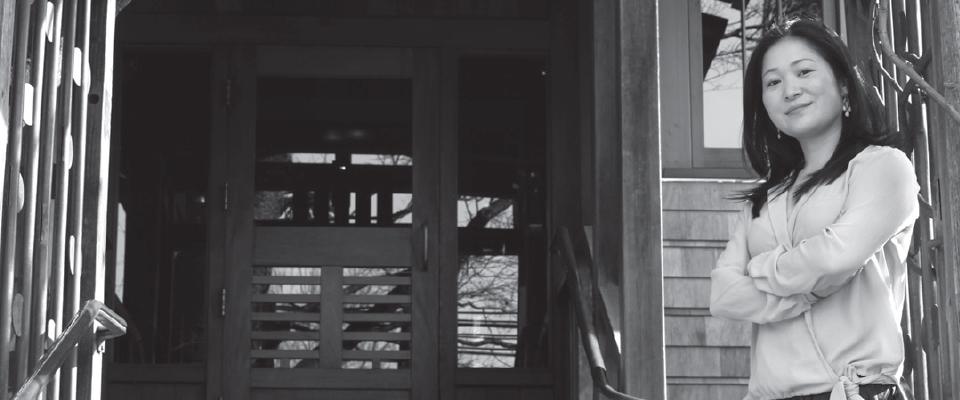The queen of California says her ultimate fate may be to open another restaurant.
When she opened the doors of Chez Panisse 36 years ago, Alice Waters had no idea how many guests would arrive or how the tiny staff of her modest neighborhood restaurant would get the food on the tables. Today, Chez Panisse is one of the most venerated restaurants in the world, and Waters’s name is linked to fresh, locally grown, organic fare, otherwise known as California cuisine, found in restaurants and homes throughout the nation. A self-described idealist, she is also politically savvy, bringing politicos and celebrities to her table and enlisting them in her crusade for a sustainable planet. This crusade that began as local garden-totable networks has spread fitfully into school curricula at a pace that frustrates her. In an interview this spring, she discussed both her triumphs and frustrations, but most of all, her vision to fuse public health and public education through the garden.
A recent book quoted you as lamenting: “Those of us who work with food suffer from an image of being involved in an elite, frivolous pastime.” But finishing the quote, you also sound a call to arms for the slow food movement in saying: “We are in a position to cause people to make important connections between what they are eating and a host of crucial environmental, social, and health issues.” Is this a tension between perception and your vision or an evolution?
That’s a summation from my experience. It was unfolding over the first five or ten years of running the restaurant. And when I found those wonderful farmers who were taking care of their land and growing beautiful fruits and vegetables and caring so much about the same things that I cared about, I wanted to tell people about that. I wanted them to know that it was so important that we buy our food from the people who do care about the same things we do and the people who share our values, because that’s the way we’re going to rebuild.
Bringing the farmer into our conscience also involves bringing the farm to the city, the rural to the urban. Envision what we might call the “edible community,” of which your Edible Schoolyard initiative would be part.
Public health and school systems need to be buying from these farmers. And that’s what’s going to bring them really into the cities. I think the farmers’ market movement in the United States has educated people in dramatic ways.
You have to begin with children. There needs to be a program in the public school system that teaches children—for lack of a better word— ecogastronomy. You begin in kindergarten. You begin in preschool. We need to feed every single child in school as part of combating childhood hunger as well as a lack of their ecoliteracy. The kids are involved in the making and the serving of their own school lunches. And the garden becomes the lab of that subject. And every year, it’s integrated into all the other courses, so you use this hands-on experience in the garden to teach science. You teach art, drawing stilllife vegetables from the kitchen. You improvise cooking as you would in a drama class.
After ten years, we’ve discovered that if children are involved in the growing and the cooking of the food, they eat it. And it doesn’t matter what it is. It can be kale; it can be rutabaga. They’re open to it if they are invested in it in a certain way. And the other thing that we learned is that they really like to be involved in cooking and serving and sitting with their friends at a table. We don’t have to bribe them to sit there and pass the peas. They like it. It’s missing in their lives at home. So we’re taking that pleasure principle and we’re using it to enliven all of the courses in the school, to really civilize public education so that kids will be predisposed to the intellectual ideas.
Chez Panisse has become a metaphor in the minds of many people, its own little opera, and you’re the starring diva. Your role is heroic and celebratory as well as political. How has this weighed on you over the years? Have you grown into this new public role?
This is so far beyond anything I expected. There I am showing the Prince of Wales around the Edible Schoolyard. “How did this happen?” I just sort of say that to myself. And I’ve met the most extraordinary people, really inspiring on so many levels. But I have to say that I’m still not really comfortable in it. It’s hard work.
You’ve got a forum here.
I do have a forum. I don’t have the figures together for this, but the idea that I have is that if we gave this mandate to the public school system, it could really be the engine for sustainable agriculture in California. It provides the buying power. That’s what it would do. It would be incredible. It would change it overnight if we were able to feed this many children from local, sustainable food from California. And the other piece about it is about the health in this state. It’s something so shocking. We’ll never, ever address the obesity epidemic if we don’t go in and touch every single child at an early age and bring each into a new relationship with food.
You’ll never be mistaken for a cynic. But what frustrates you?
The difficulties are about money. But also ignorance, in terms of the importance of food. So those things combined give you sort of a wall of resistance. This needs to be an idea that’s communicated at the top—like John Kennedy proposed more than 40 years ago around physical education: every child needs to take this. And we’re going to have to build gardens like we did gymnasiums, and we’re going to buy equipment and hire teachers and spend lots of money because this is that important to us.
What is the catalyst?
It has to have money from the city, the state, or the federal government. And it has to have a mandate that this is a priority because of the health consequences.
Have you had Governor and Mrs. Schwarzenegger to dinner?
I haven’t had them both, but I’ve had Maria come to the Edible Schoolyard. She’s a big supporter. I went up to his obesity conference summit meeting last year. And I’m working with a lot of his people in the Department of Agriculture.
So is this where your energies have turned?
Yes. This is what I’m going to do in the next two years, figure out how to get this vision into the platforms of the people who are running for president.
Who reaches out to you politically and seeks your advice? Does Hillary Clinton?
She does, yeah. I think she’s really sincere about a whole number of things. I think she’s deeply interested in children’s health and education. My good friends are sort of educating her in terms of sustainability. And they’ve been working with her over the last ten years. So she’s doing a lot of very interesting things in New York State.
Anybody else we know?
Well, Nancy Pelosi and Barbara Boxer and Barbara Lee, absolutely, and Ron Dellums. I have had a small conversation with Barack Obama. I think he’s somebody who’s really open to this. A lot of mayors are.
What has been your personal cost in reaching out so much politically, rather than reaching for a sprinkle of tarragon to go on the roast chicken?
It does sort of take its toll. And I’ve just decided I can only keep this up for ten more years. And then I’m going to go cook again. There’s something I miss terribly. I may have to start another little restaurant.





















